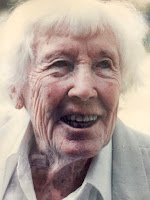Joan Price's new book, "Sex After Grief,"
is a reminder that our sexuality doesn't
desert us in grief any more than breathing does.
When I was doing the research for “Free Fall: A Late-in-Life Love Affair,” a memoir I published in 2010 with Seal Press, I came across studies showing that more than half of people into their 80s regularly enjoy oral sex.
Really?
And thus began an eye-opening learning curve, the findings of which I pass on at every opportunity.
I was 57 at the time. Men were living large with Viagra in ways I hadn’t realized. When author Joan Price and I spoke at a senior residential center in Manhattan in 2010, we saw condoms in the restrooms. The staff was doing what they could to impede a worrisome outbreak of STDs and HIV at the center.
Our talks that day went well except for the woman who was fed up with what she perceived as men’s outsized and enthusiastic appetites. She walked out of our joint presentation, disgusted. “I’m done with sex,” she muttered as she left the large community room. People ate their lunches of macaroni and cheese while we talked about the joys and challenges of sexuality and aging, clad in T-shirts imprinted with the names of our books.
Our sexuality doesn’t have to diminish with age but things get in the way, among them illness, routine physical challenges like arthritis, long days and hard work, and the loss of a beloved partner.
Modern medicine has certainly handed an assist to many of us.
The proliferation of hip and knee replacements allows people with healthy libidos extended sexual activity. My husband had a knee replaced a couple of years ago. Beforehand, we attended a required class at the hospital, held in a large room divided down the middle. Half those in attendance were there to learn about their upcoming hip replacements and half learned about their knee replacements. I stood in the back because there weren’t enough seats. Outfitted with new knees and hips, people’s lives are suddenly and happily expanded. They can hike, dance, bike and make love again.
But hold on. Stiff knees and the host of age-related complications that creep into bed with people don’t stop them from having good sex. There are work arounds. And people are ingenious.
People over 50 have sex. Another thing I learned when talking about “Free Fall” was how many young people didn’t know much about aging and sexuality. Once, at a reading in Newburyport, a woman in her 40s stood up and thanked me. “I thought it was all over at 50,” she said. And she was serious. I got letters from young women who simply wrote: “Thank you!” One twentysomething wrote more than once, just to check in to see if I was still enjoying sex. Things are still very great at 71. I am lucky to have Jim, who is turning 80 this December, and, yes, we fall within the range of normal.
Writing “Free Fall” was easy but pressing “send” was not. I had to brace myself then and forever after for the repercussions of writing in a personal way about sex and my difficult life in 2007. I did it because I wanted people to know that sexuality can go dormant but it doesn’t go away. It can catch you by surprise. Blindside you. Knock the wind out of you. Alter your very existence. When we allow ourselves to become so busy, so cerebral and so cut off from our physicality, we are at risk. And the quality of our every waking moment is lesser for it. Being in touch with our physical self, and our physical universe, makes everything richer and deeper and more meaningful. When writing “Free Fall,” I often equated having sex with hiking and running and meditating and music — physically and spiritually enriching experiences.
What about when the unspeakable happens? When someone loses a beloved sexual partner, they are likely to shut down sexually as a normal part of grieving. Joan Price’s newest book, “Sex After Grief,” does a beautiful job examining grief and sexuality. My review of Joan’s book for GateHouse Media is at the bottom of this blog post and the link is here.
Grief is all encompassing but the body and the brain and the emotions are not necessarily on a parallel course. We can crave physical pleasure even when we are desperately missing the lovemaking we had with our partner. These disparate feelings can be harrowing, as Joan describes.
Joan’s book performs many services, not the least of which is to make us aware of our continued sexuality, even in grief. Age, bad knees, a new baby or a deceased partner signal a pause, not an end, to our sexuality. It’s better to know that in advance. Sexual want is potent. And sexual want is a force unfettered. Thanks to Joan, sexual want doesn’t have to blindside us or make us feel crazy when in grief.
• • •
In grief we discover just how complex we are
By Rae Padilla Francoeur
Sex After Grief: Navigating Your Sexuality After Losing Your Beloved
By Joan Price. Mango, Coral Gables, 2019. $16.95. 172 page.
The mind and body aren’t always in agreement. Someone grieving the death of a beloved partner can be gobsmacked by sexual arousal. Such unexpected, often unwanted feelings in the peak of grief trigger shock and shame, further traumatizing the grief-stricken.
Humans are complicated creatures, as author and expert on senior sexuality Joan Price so aptly demonstrates in her newest book, “Sex After Grief.” “It’s time to talk out loud about sex and grieving,” she writes. “There are many books about grief after loss of a beloved, but they almost never talk about sex.”
Price consults experts in the field of grief as well as those grieving the loss of partners for materials for this book. She also draws from her research as well as her Grief Journal and her Memory Journal that she kept after losing her husband, the love of her life found later in life. She delivers a small, special gift to those attempting to reconcile warring emotional and physical responses during bereavement. What may seem like chaos is natural and normal, she reassures those in the throes of great emotional tumult.
Price, 75, lost her husband Robert Rice in 2008 and spent several years not just grieving but learning about loss and grief. She had four grief counselors throughout her journey as she moved from someone rocked by devastating loss to a generous and compassionate sage.
A knowledge of grief along with her expertise in the field of senior sexuality — she has written four other books on senior sexuality and is a sought-after speaker internationally — prompted Price to more deeply investigate the topic of sexuality and grief. Loss of an intimate partner can happen at any age. Grief isn’t the exclusive realm of the elders, sadly, and “Sex After Grief” will resonate with many seeking guidance and support after loss such as divorce, rejection or other circumstances.
The many voices in this book are smart, well-spoken and insightful. Grief seems to open an exquisite, poignant dimension where the bereaved exist in a state of extremes. Emotions, thoughts and experiences are charged and precious. Those transitioning from this stage are changed, says Price. And while they are vulnerable, apprehensive and unsure, they are also wiser and courageous.
Price’s “grief journey” lasted 10 years but during that time, she allowed herself many helpful experiences including forays into the realm of friends with benefits, erotic massage and online dating. She made sure, at every juncture, that she paid attention and honored her inclinations. Her decision to keep two journals, one she filled with good memories of her husband and one about her grief, gave her some of the material she needed to structure and write this book.
White-knuckle grief, “skin hunger,” guilt, disloyalty, loneliness and isolation, and even loving memories clog the path forward. Price writes of “halting steps” toward a place where grief exists but doesn’t always sear. Every loss is unique, every person is unique and, therefore, every journey is unique. Price’s chapters about myths, grief counselors, dating and “pilot light lovers” (those who ignite dormant passions) are all especially meaningful in that they explore experiences, sexual orientation and concerns.
Price speaks candidly about sexuality and the ways sexuality changes with age. The primary audience for this book, people over 50 (perhaps), will not be surprised by what they read. Older people know sexuality doesn’t necessarily diminish with the advent of age and age-related impairments. Older people happily accommodate. Senior sexuality still seems like something of a secret that Price is trying to bring out in the open. Wouldn’t it be nice for Millennials to know, for example, that their sexuality isn’t subject to obsolescence? People of all ages keep at it, often until a final severe illness brings a close to that part of normal and natural functioning. One of the key attributes of this book is an absence of hedging and judgment. Price has a way with candor. Sexuality is. And it’s there, even in dying and death.
Price, too, has found delight and pleasure in her sexuality once again. They exist in concert with a grief that has moderated with time and hard work.

























